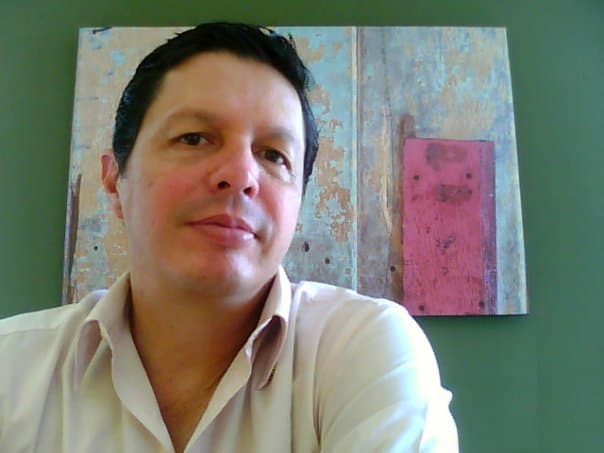Editor’s note: Carlos Sojo, a renowned Costa Rican sociologist and former director of the Latin American Faculty of Social Sciences in Costa Rica, died on Nov. 15 at the age of 51. Sojo was one of Costa Rica’s most respected researchers, and for decades was a popular and common source for Tico Times reporters. The following column originally appeared in Diario Extra and is published here with permission. Please visit the original column in Spanish here.
I first met Carlos years ago. It happened at the end of what is now called the “Calle de la Amargura” (between the old Soda Guevara and the Librería Macondo, which was run by the endearing Dante Polimeni), next to the main entrance of the University of Costa Rica. I was 22 and a candidate for the presidency of the university’s student federation. Carlos was 19, a sociology student, and tall and skinny like we all were back then. He stopped me on the sidewalk one day and began to ask questions, impressing me so much with his unusual intelligence – so very on-the-mark and inquisitive – that I remember it vividly to this day.
We had a coffee at the Guevara (where he told me he wasn’t going to vote for me because he was looking for a more direct and transgressive approach than what I offered, which he considered “too reformist,” but that he would think about it), and a friendship was born that would span more than three decades.
Years went by and I lost track of him. He went off to the Netherlands for post-graduate work, and I went to Washington and Madrid. Life made us grow up. I had heard that he married Silvia Lara, a former classmate of mine in General Studies. A decade and a half later, fate would unite us again.
An extraordinary project by the World Bank and the Latin American Faculty of Social Sciences, or FLACSO, directed by Shelton Davis and Estanislao Egacitúa, brought us together to develop a series of public policy proposals to address inequality in Latin America. I worked with Carlos for many months on the concept of the “umbral de ciudadanía” (the “threshold of citizenship”), based on human rights, as a substitute for the controversial and dishonest “poverty lines.” The “umbral” was an idea that emerged out of the Inter-American Institute of Human Rights and the Economic Commission for Latin America and the Caribbean. The reflections and work we did with Carlos in those years are, without a doubt, one of the most creative and interesting academic endeavors on which I’ve ever embarked.
Years later, radio brought us together again. Carlos was my partner and co-host of a program called “El Mundo en Contexto” (“The World in Context”) at the University of Costa Rica’s radio station. We recorded together for more than seven years, every week, producing more than 350 shows in which we interviewed many of the great thinkers from Latin America and around the world – from José Emilio Pacheco in Mexico City to Machinea in Argentina, and from Torres Rivas in Guatemala to Zallaquet in London. Carlos and I sought to reflect upon what was happening in the world and shake up a bit those lethargic, parochial and provincial minds of Central America. Somewhere in the archives of Radio UCR those recordings still exist, and someone ought to organize and compile them.
We also helped each other publish books. FLACSO, via Carlos, co-edited my book “Neotribalismo y globalización” (“Neotribalism and globalization”), and years later I helped him publish “Igualiticos” (loosely translated as “We’re all the same Ticos”) – both of which sold out of their first editions and were widely distributed. We joked about the fact that in addition to being academics and writers, we weren’t too bad at promoting books, although we were terrible businessmen. Tía Florita always beat us. Our books weren’t bad – people read them – but we were entirely incapable of making a single cent from them.
Carlos Sojo was not only one of the most brilliant academics of his generation in Costa Rica and Latin America, but also he was a great human being. Statistics and concepts pained him, almost as much as people did. He was an expert on poverty, but he was most pained by people living in poverty, as well as inequality, and our bizarre Central America, where you could see a Porsche Cayenne and obscene opulence just a few blocks away from a miserable slum, where people lived on less than $2 per day. He was a good human being, in Machado’s sense of the term. A magnificent human being.
I am honored to have been his friend and I am pained by his death. As a mutual friend wrote, the best days for Carlos were yet to come. And that’s true. But if he were here today, his quick-witted intelligence would take the news with serenity, and with a smile, he would wink back at us. He’d slap us on the back and say, “¡Adelante, esto sigue!”
Dr. Jaime Ordóñez is director of the Instituto Centroamericano de Gobernabilidad.






